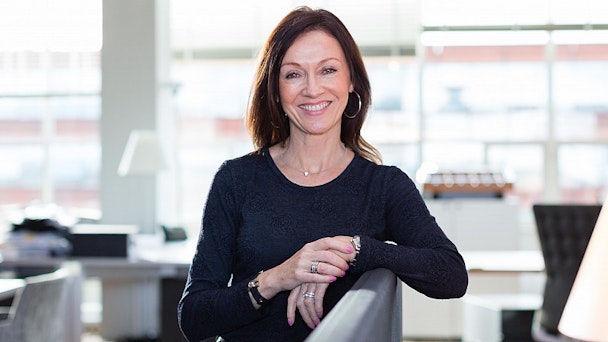‘There are businesses that had better growth than us’: former CEO on selling BJL to Dentsu
Nicky Unsworth was chief executive officer at BJL for 15 years until it was fully wrapped into Dentsu Mcgarrybowen UK earlier this year. She was at the helm for the sale to Dentsu back in 2019. As part of our Better Business series, she sat down with head of The Drum Network Holly Hall and our own chief exec Diane Young to talk about creative leadership, the sale and stepping back from the business.

BJL’s former chief exec Nicky Unsworth on its sale to Dentsu / Image via Nicky Unsworth
One way to tell the story of BJL’s sale to Dentsu is that it was serendipity. As former chief exec Nicky Unsworth puts it, BJL’s leaders had always had a “growth mentality,” but they weren’t aggressively looking for buyers. No, the simple version of the story goes thus: Unsworth found herself on a panel one day with some folk from Dentsu, conversations started happening, and 18 months later the deal was inked.
Of course, selling to one of the biggest agency networks in the world doesn’t happen by chance. But that doesn’t mean that the chance encounter on the panel wasn’t important. In fact, for Unsworth, attending that panel and others like it is a key to the agency’s success: “We just said yes to things.”
Although BJL’s leaders hadn’t been in “a desperate rush” to sell, they realized as the business grew that they had a responsibility to explore the best options for growth. “There’s a natural phasing to a business,” says Unsworth, “and when you’re a people-based business you recognize that there has to be a next stage.” Over the years, she says that they spoke to all sorts of businesses about all sorts of options – but, until the sale, “we grew, broadly speaking, organically.” They had no M&A strategy and only made one acquisition, taking on Mere PR back in 2013 to round out their PR offering.
Preparing for sale by focusing on work
Sale to the likes of Dentsu is of course a dream for many agency leaders – but Unsworth’s advice is that that goal should never take over completely. “The biggest learning for me was not to try to start to develop your business to sell – [but] just to make your business as great as it can be and to hang on to all of the core values that you had anyway. That’s in the end what helped us to sell.” In other words, moving into “selling your business mode” might seem like a smart way of focusing your resources on achieving your goal, but it can come at the cost of the things that make you worth buying in the first place.
It might sound obvious, but this comes down to offering something that buyers need. What attracted buyers wasn’t stratospheric growth – “there are businesses out there that had better growth than us.” But BJL was, for Dentsu, “the missing piece of the jigsaw” thanks to their creative reputation for delivering a “very rounded story on a campaign” – not just above-the-line but in PR, social and employee engagement.
For others looking to sell, the puzzle and the pieces will be different, but the principle remains: what do you do well, and which organizations might benefit from it?
Selling with conscience
It was important to make sure that it was the right sale for BJL, not just Dentsu. Unsworth recalls five criteria for any potential sale. It would have to: add value to the BJL offering; be a good cultural fit; be good for the existing team and their career prospects; compliment the teams’ skill sets; and (most importantly) “be something that, when I stood up in front of the agency and told them what was happening, I felt proud to say.”
This speaks to Unsworth’s leadership philosophy, all of which is underpinned by an understanding that “we’re responsible for 75 mortgages.” Her vision for the role of an agency in its workers’ lives is almost enough to make one nostalgic for the days before remote working: the aim should be to create an environment where staff “feel a sigh of relief” when, after a tough meeting, they return to the office or studio. The result, in BJL’s case, was that “people genuinely did feel that it was their agency” – a level of investment that, perhaps, makes leaders’ jobs even harder at sale.
While Unsworth clearly felt that responsibility keenly, it’s clear that she considers leaders’ responsibilities to workers a part of the job, and one that creates permanent ties. Part of the deal for BJL’s board was an earn-out, with Unsworth staying on for over two years of transition and consolidation. “I imagined that an earn-out would be a real pain in the backside – but it wasn’t [...] you’re a custodian and transitioning your business. The last thing you want to do is leave at that phase.”
Now, after staying on for the transition and the rocky period of the pandemic, she has stepped back from her role as chief exec. But envisaging life beyond the agency might take some time: “I still feel like I’m on holiday.”
Members of The Drum Network can watch Better Business sessions live and participate in their Q&As. The next session is on diversifying talent, with Ross Taylor, co-founder of Hidden, and Sarah Baumann, managing director of VaynerMedia.

